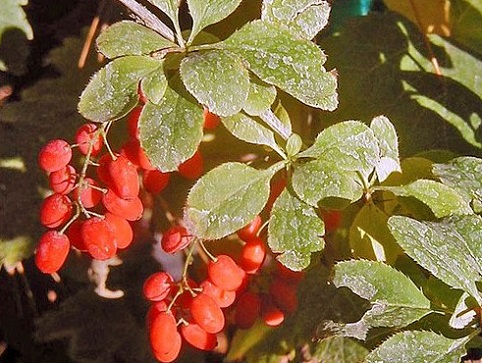Indian Study Finds That Berbamine Can Inhibit the Entry and Transmission of SARS-Cov-2
Nikhil Prasad Fact checked by:Thailand Medical News Team Dec 10, 2024 4 months, 3 days, 8 hours, 50 minutes ago
Medical News: As the world continues to grapple with COVID-19 and its emerging variants, scientists are exploring innovative solutions to enhance our arsenal against the virus. Berbamine, a naturally occurring phytochemical compound extracted from the traditional Chinese medicinal plant Berberis amurensis, has caught the attention of researchers. A recent study conducted by scientists from the Translational Health Science and Technology Institute (THSTI), India, highlights the antiviral potential of this compound.
 Indian Study Finds That Berbamine Can Inhibit the Entry and Transmission of SARS-Cov-2
Indian Study Finds That Berbamine Can Inhibit the Entry and Transmission of SARS-Cov-2
The findings of this study, which delve into berbamine’s ability to inhibit the entry and transmission of SARS-CoV-2, provide a compelling case for its use as a preventive and therapeutic tool. This
Medical News report explains the study in simple terms, focusing on its findings and broader implications for public health.
Understanding How Berbamine Works
Berbamine belongs to a group of phytochemical compounds known as bis-benzylisoquinoline alkaloids. In laboratory experiments, it has shown the ability to target key components of SARS-CoV-2’s infection process. Specifically, it inhibits the viral spike protein, a crucial tool that the virus uses to attach to and invade human cells.
When SARS-CoV-2 infects a person, its spike protein binds to a receptor called ACE2 on human cells. This binding facilitates the virus's entry into the cells, where it begins replicating. Berbamine interrupts this process by preventing the spike protein from binding effectively to ACE2. Furthermore, the compound enhances the body’s natural antiviral defenses by boosting the production of certain immune-related genes.
What the Study Found
The research team at THSTI conducted a series of tests on cells and animal models to assess berbamine’s antiviral properties. Their findings revealed several promising features:
-Inhibits Viral Replication
Laboratory studies demonstrated that berbamine significantly reduced viral load in infected cells. At optimal doses, viral levels became undetectable, showcasing the compound’s potency.
-Broad-Spectrum Antiviral Activity
Berbamine was tested against multiple variants of SARS-CoV-2, including the Delta and Omicron strains. It exhibited strong activity across these variants, suggesting that it could serve as a universal tool against diverse coronavirus strains.
-Immune System Activation
The compound enhanced the host’s immune response by increasing the expression of interferon-related genes. Interferons play a key role in combating viral infections by alerting neighboring cells and activating immune defenses.
-Synergistic Effects with Existing Treatments
When combined with certain drugs that are used as antivirals
against SARS-CoV-2 , berbamine showed a synergistic effect, significantly reducing viral levels. This finding suggests that berbamine could enhance the efficacy of current antiviral treatments.
Prevention of Virus Transmission
In a novel experiment, researchers found that mice treated with berbamine were less likely to transmit the virus to healthy mice. This opens up possibilities for using berbamine to curb the spread of the virus in high-risk environments.
Findings from Animal Studies
To further test berbamine’s efficacy, researchers conducted experiments using genetically modified mice engineered to mimic human infection. These mice, known as hACE2.Tg mice, possess the human ACE2 receptor, making them susceptible to SARS-CoV-2.
-Prophylactic Use
When administered to mice before infection, berbamine provided robust protection. Mice pre-treated with berbamine had lower viral loads, less lung damage, and higher survival rates compared to untreated mice.
-Therapeutic Use
Berbamine also demonstrated benefits when given after infection. Although less effective than pre-treatment, it reduced disease severity, lowered viral replication, and improved survival rates.
-Reduced Transmission
In an innovative experiment, infected mice treated with berbamine were co-housed with healthy mice. The healthy mice cohabiting with berbamine-treated infected mice had significantly lower chances of contracting the virus compared to those housed with untreated infected mice.
Broader Applications of Berbamine
The versatility of berbamine goes beyond COVID-19. Its broad-spectrum antiviral properties make it a potential candidate for combating other respiratory viruses, such as MERS-CoV and seasonal influenza. Furthermore, its plant-based origin and low toxicity profile make it particularly attractive for large-scale use in diverse populations, including those with limited access to healthcare.
Implications for Future Pandemics
COVID-19 has highlighted the need for broad-spectrum antivirals that can address a wide range of variants and even future coronaviruses. Berbamine’s effectiveness against SARS-CoV-2 variants and related viruses positions it as a valuable tool for pandemic preparedness.
Its dual mode of action - directly targeting the virus and enhancing the host immune response - provides a multi-faceted approach to infection control. This makes berbamine especially valuable for individuals at high risk, such as the immunocompromised, who may not respond well to vaccines.
Conclusion
The study’s findings position berbamine as a promising candidate in the fight against COVID-19. By preventing viral entry, reducing transmission, and enhancing the immune response, berbamine offers a multi-pronged strategy to manage SARS-CoV-2 and its variants. Its ability to work synergistically with existing drugs adds another layer of potential, making it a versatile option for treatment and prevention.
While these results are promising, human clinical trials are essential to confirm berbamine’s safety and efficacy. If successful, berbamine could become a game-changer in managing not only COVID-19 but also future pandemics caused by respiratory viruses.
The study findings were published in the peer-reviewed journal: iScience.
https://www.cell.com/iscience/fulltext/S2589-0042(24)02572-0
For the latest COVID-19 News, keep on logging to Thailand
Medical News.
Read Also:
https://www.thailandmedical.news/news/indonesian-scientists-explore-the-anti-inflammatory-potential-of-melaleuca-cajuputi-extract-in-fighting-covid-19
https://www.thailandmedical.news/news/phytochemicals-from-roots-of-lespedeza-bicolor-show-promise-against-sars-cov-2
https://www.thailandmedical.news/articles/herbs-and-phytochemicals
